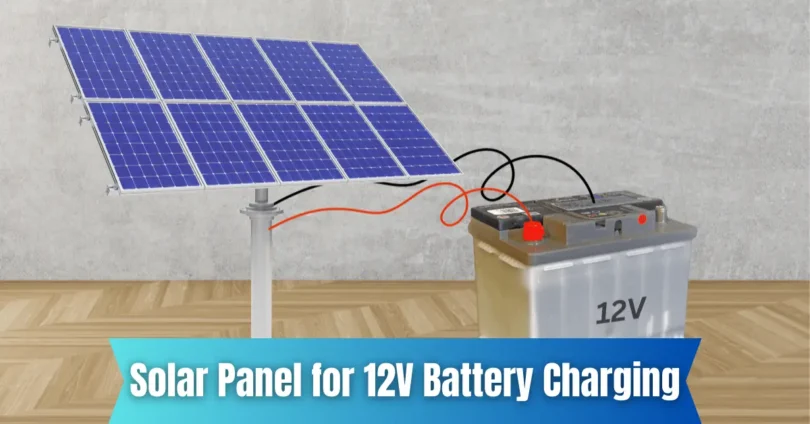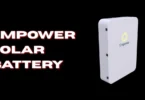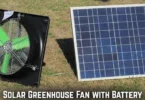If you’re looking for a reliable and eco-friendly way to charge your 12V battery, a solar panel for 12V battery charging is a great option. With the rising demand for renewable energy, solar panels offer a sustainable solution for powering various devices, from RVs to backup power systems.
A solar panel for 12V battery charging not only helps you save on electricity bills but also gives you the freedom to charge your batteries even in remote areas, all with the power of the sun.
What is a 12V Battery?
A 12V battery is a type of rechargeable battery commonly used in various applications, from powering vehicles to providing backup power. It gets its name from its nominal voltage of 12 volts, which is a standard in many systems. Let’s break down the details:
Basic Definition
- A 12V battery provides a nominal voltage of 12 volts, which is ideal for many devices and vehicles.
- It typically contains six cells, each providing around 2.1 volts.
Common Uses
- Vehicles: Most cars, trucks, and motorcycles use 12V batteries to start the engine and power electrical systems.
- Off-Grid Systems: Many RVs, boats, and solar setups rely on 12V batteries for energy storage.
Types of 12V Batteries
- Lead-Acid Batteries: The most common and cost-effective type, used in cars and backup systems.
- Lithium-Ion Batteries: These are lighter, longer-lasting, and more efficient but come at a higher cost.
How it Works
- Inside a 12V battery, a chemical reaction occurs to store and release electrical energy.
- The energy stored in the battery powers devices by releasing electricity when needed.
Why Choose a Solar Panel for 12V Battery Charging?
Using a solar panel for 12V battery charging offers several benefits. It’s a clean, cost-effective, and reliable way to power your devices and keep your batteries charged. Let’s dive into why it’s such a great choice:
Eco-Friendly Energy Source
- Solar panels use renewable energy from the sun, reducing reliance on fossil fuels.
- By choosing solar, you help reduce your carbon footprint and contribute to a greener planet.
Cost-Effective in the Long Run
- After the initial installation, solar power is free no ongoing electricity costs.
- Solar panels require minimal maintenance, saving you money over time.
Off-Grid Charging Solution
- A solar panel allows you to charge 12V batteries anywhere, even in remote or off-grid locations.
- Whether you’re camping, boating, or living in an off-grid home, solar panels provide reliable power.
Energy Independence
- Solar power lets you avoid utility power outages and grid failures.
- You can rely on your own energy source to keep your 12V battery charged, ensuring continuous power.
Low Maintenance
- Solar panels are durable and require very little upkeep once installed.
- Regular cleaning and occasional checks are usually all that’s needed to keep them working efficiently.
How Solar Panel for 12V Battery Charging Works
Understanding how a solar panel for 12V battery charging works is essential for setting up your own system. Here’s a simple breakdown of the process:
Solar Panel Converts Sunlight into Electricity
- Solar panels use photovoltaic (PV) cells to capture sunlight and convert it into direct current (DC) electricity.
- The more sunlight the panel receives, the more energy it generates to charge the battery.
Charge Controller Regulates the Power Flow
- A charge controller prevents overcharging by managing the flow of electricity from the solar panel to the battery.
- It ensures the battery receives the correct voltage (usually around 14-15V) to safely charge without damage.
Storing Energy in the 12V Battery
- Once the solar panel generates electricity, the charge controller sends it to the 12V battery for storage.
- The battery stores energy for later use, allowing you to power devices when the sun is not shining.
Powering Your Devices
- When needed, the 12V battery can release stored energy to power devices, such as lights, fans, or small appliances.
- A simple inverter can convert the DC power from the battery into AC power if necessary.
Efficiency and Performance Factors
- The efficiency of the system depends on factors like panel size, sunlight exposure, and battery capacity.
- Regular maintenance and optimal positioning of the solar panel can improve performance.
Factors to Consider When Choosing a Solar Panel for 12V Battery Charging
Selecting the right solar panel for 12V battery charging requires considering several factors to ensure you get the most efficient and reliable system. Here’s what to keep in mind:
Wattage of the Solar Panel
- The wattage determines how much power the panel can generate.
- A higher wattage means faster charging, but make sure it matches your battery’s capacity.
- Choose a panel with enough wattage to meet your energy needs and battery charging requirements.
Efficiency of the Solar Panel
- Efficiency refers to how much sunlight the panel can convert into usable energy.
- Higher efficiency panels cost more but charge batteries faster and work better in low-light conditions.
- Choose a panel with good efficiency to ensure you get the most out of your investment.
Battery Type and Compatibility
- Different battery types (lead-acid, lithium, etc.) require different charging voltages.
- Make sure the solar panel and charge controller are compatible with your specific 12V battery type.
- Check the manufacturer’s recommendations for both the solar panel and battery to ensure safe and effective charging.
Solar Panel Size and Portability
- Consider the physical size of the solar panel, especially if you have limited space or need to move it frequently.
- Smaller, portable panels are ideal for camping or traveling, while larger panels are better for home or RV systems.
- Evaluate where you’ll place the panel and whether you need a fixed or portable option.
Weather Resistance and Durability
- Your solar panel will be exposed to weather conditions, so choose one that is durable and weather-resistant.
- Look for panels with sturdy materials and waterproofing for long-lasting use in various climates.
- Panels designed for outdoor use will last longer and withstand harsh conditions like rain, snow, or extreme heat.
Charge Controller Type
- A charge controller is crucial to prevent overcharging or undercharging your 12V battery.
- There are two main types: PWM (Pulse Width Modulation) and MPPT (Maximum Power Point Tracking). MPPT is more efficient but costs more.
- Choose the right controller based on your budget, panel type, and battery needs.
Budget
- Solar panels come in various price ranges, from affordable options to premium models.
- Keep in mind that a higher upfront cost often means better performance, durability, and energy efficiency.
- Balance your budget with your needs to find the best value for your solar panel system.
Top Solar Panels for 12V Battery Charging
Choosing the right solar panel for your 12V battery charging can be tricky with so many options on the market. Below are some of the top solar panels, each offering excellent performance and value for different needs:
Renogy 100 Watt 12 Volt Monocrystalline Solar Panel
- This panel is a popular choice for off-grid setups and small battery charging systems.
- High efficiency and compact size make it perfect for RVs, boats, and cabins.
- Known for its durability, it works well even in low-light conditions.
- Ideal for beginners, offering easy installation and solid performance.
Goal Zero Nomad 20 Solar Panel
- Designed for portability, the Goal Zero Nomad 20 is perfect for camping and travel.
- It can charge smaller devices or a 12V battery on the go, thanks to its 20W output.
- Foldable and lightweight, making it easy to store and carry.
- Provides reliable performance with built-in USB ports for direct charging.
ALLPOWERS 100W Portable Solar Panel
- This panel is perfect for those who need a portable, easy-to-use system.
- It comes with a built-in charge controller for safe 12V battery charging.
- Offers high-efficiency monocrystalline solar cells and good performance even in cloudy conditions.
- The foldable design makes it compact and travel-friendly, great for outdoor adventures.
WindyNation 100 Watt Solar Panel Kit
- This solar panel kit comes with everything you need to charge your 12V battery.
- Includes a charge controller, wiring, and mounting hardware for easy setup.
- The 100W panel can charge 12V batteries quickly and efficiently.
- Ideal for home, RV, or off-grid systems, providing reliable performance at a reasonable price.
Jackery SolarSaga 100W Solar Panel
- This solar panel is great for people who want a portable yet efficient charging solution.
- It’s compatible with Jackery portable power stations but can also charge 12V batteries.
- The panel is foldable, lightweight, and weather-resistant, making it a solid choice for outdoor use.
- Offers high conversion efficiency, ensuring quick charging even in cloudy conditions.
Eco-Worthy 100W 12V Solar Panel Kit
- Ideal for beginners and DIY enthusiasts, this kit includes a 100W solar panel and a charge controller.
- The solar panel is known for its high-quality construction and dependable performance.
- It is easy to install and is perfect for small to medium off-grid setups.
- The kit provides a great value for those looking to get started with solar energy.
How to Set Up a Solar Panel for 12V Battery Charging
Setting up a solar panel for 12V battery charging is straightforward if you follow the right steps. Here’s a simple guide to get your system up and running:
Gather the Necessary Components
- You’ll need a solar panel, a charge controller, a 12V battery, and the necessary wiring.
- Optional components include a battery monitor, inverter, or mounting hardware depending on your setup.
Position the Solar Panel
- Place your solar panel in a location where it will receive maximum sunlight throughout the day.
- Ensure the panel is not obstructed by trees, buildings, or other objects that could block sunlight.
Connect the Charge Controller
- The charge controller manages the power flowing from the solar panel to the 12V battery.
- Connect the positive (+) and negative (-) wires from the solar panel to the charge controller’s input terminals.
- This ensures the solar panel is safely charging the battery without overloading.
Connect the Charge Controller to the 12V Battery
- Use the proper wiring to connect the charge controller’s output terminals to the 12V battery.
- Again, connect the positive (+) and negative (-) terminals, making sure the connections are tight and secure.
- The charge controller will regulate the voltage and prevent overcharging.
Check the System’s Output
- Once everything is connected, monitor the system’s output using the charge controller’s display.
- Check the voltage of the 12V battery to ensure it’s charging properly and the solar panel is functioning.
- If you have a battery monitor, keep an eye on the charge percentage.
Install an Inverter (Optional)
- If you want to power AC devices (like lights or small appliances) from the 12V battery, install an inverter.
- Connect the inverter to the 12V battery, ensuring it matches the battery’s voltage and capacity.
- The inverter will convert DC power from the battery to AC power for your devices.
Regular Maintenance and Monitoring
- Clean the solar panel periodically to ensure it works at full capacity.
- Check the charge controller and battery connections regularly to avoid corrosion or loose wires.
- Monitor the system’s performance and ensure the battery doesn’t get overcharged or discharged too much.
Common Issues and Troubleshooting for Solar Panel 12V Battery Charging
Even though solar panel systems are reliable, you might face a few issues. Here are some common problems and troubleshooting tips to help you keep your solar panel for 12V battery charging running smoothly:
Low Solar Panel Output
- Low output could be due to shading, dirt, or debris on the panel’s surface.
- Check if the solar panel is properly aligned to catch enough sunlight throughout the day.
- Clean the panel regularly and remove any objects that could block sunlight.
Battery Not Charging
- If your 12V battery isn’t charging, check all the connections between the solar panel, charge controller, and battery.
- Ensure the charge controller is properly set for a 12V system and is functioning correctly.
- Test the solar panel with a multimeter to confirm it’s producing the right voltage.
Overcharging or Undercharging
- Overcharging can happen if the charge controller isn’t functioning properly, damaging the battery.
- Ensure your charge controller is set for the correct charging parameters for your 12V battery.
- If your battery is undercharging, it could be due to a faulty charge controller or inadequate sunlight reaching the panel.
Battery Draining Quickly
- If your 12V battery drains faster than expected, it could be due to a battery that’s not holding a charge properly.
- Check the battery’s age; old or damaged batteries might not store energy efficiently.
- Ensure that the solar panel is producing enough energy to match your battery’s needs.
Inverter Not Working Properly
- If you’re using an inverter and it’s not providing AC power, check its connections to the battery.
- Verify that the inverter’s voltage matches your 12V battery system and that it’s not overloaded.
- If the inverter is faulty, try resetting it or replacing its fuse if necessary.
Charge Controller Error or Malfunction
- If the charge controller is showing an error or malfunction, check for loose or corroded connections.
- Reset the charge controller and check the battery’s voltage levels to ensure it’s working correctly.
- If the controller continues to malfunction, it may need to be replaced.
Solar Panel is Not Receiving Enough Sunlight
- Ensure the panel is positioned correctly for maximum exposure to sunlight.
- If the sun’s angle changes seasonally, you may need to adjust the panel’s angle or location.
- For areas with frequent cloudy weather, consider using a higher-wattage panel for more consistent charging.
Common FAQs on Solar Panel for 12V Battery Charging
How much power does a solar panel need to charge a 12V battery?
The amount of power depends on your battery’s size and how much energy you need. Generally, a 100W solar panel works well for a standard 12V battery.
Can I use any solar panel to charge a 12V battery?
Not all solar panels are the same. You need a solar panel with the right voltage and output to match your 12V battery. A 12V panel or a panel with a charge controller designed for 12V batteries is ideal.
How long does it take for a solar panel to charge a 12V battery?
Charging time depends on the panel’s wattage and the battery’s capacity. On average, it can take anywhere from 4 to 8 hours of sunlight to fully charge a 12V battery with a 100W panel.
What happens if I overcharge my 12V battery?
Overcharging can damage your battery, reducing its lifespan. A good charge controller prevents overcharging by automatically regulating the voltage going into the battery.
Can I use a solar panel to charge my 12V battery during cloudy days?
Yes, but charging efficiency will be lower on cloudy days. If you live in a cloudy area, consider using a higher wattage solar panel or adding more panels for faster charging.
Do I need a charge controller to use a solar panel for 12V battery charging?
Yes, a charge controller is necessary to regulate the amount of power flowing from the solar panel to the battery, ensuring safe charging and preventing overcharging.
How do I know if my solar panel is working properly?
You can use a multimeter to check if your solar panel is producing the correct voltage. Also, monitor your battery’s charge to ensure it’s filling up properly.
Conclusion
Using a solar panel for 12V battery charging is a great way to harness clean, renewable energy for your devices and systems. By following the right setup steps and understanding common issues, you can enjoy a reliable and eco-friendly power source.
Regular maintenance and proper troubleshooting will ensure your system runs smoothly for years to come. Start with the right panel and enjoy the benefits of solar power!




